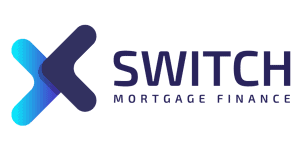Gone are the days of historically low mortgage rates. The UK is currently experiencing a tough economic climate and interest rates have been on the rise. As a result tracker mortgages are back and interesting mortgage clients.
With rates extremely low it was a no brainer to choose a fixed rate mortgage, locking in a low rate for 2-5 years meant benefitting from low payments and having security that your payments would not change. Before low rates became common place a tracker mortgage was a popular choice with mortgage customers. Now with interest rates higher should you get a tracker mortgage?
What is a Tracker Mortgage?
A tracker mortgage is a type of variable-rate mortgage. Its interest rate ‘tracks’ e.g, (moves in relation to) an external interest rate, e.g. the Bank of England Base rate.
So for example, if your tracker mortgage deal is described as 1.5% above the Bank of England base rate, it would mean that your tracker mortgage will always charge interest at 1.5% above the base rate. Thus, if the Bank of England rate is 2.25%, the interest rate of your tracker mortgage would be 3.75%. If the base rate were to rise by half a percentage point, your tracker mortgage would rise to 4.25%.
A tracker mortgage therefore differs from a fixed rate mortgage, where you pay the same every month for the duration of the mortgage deal. If the Bank of England’s base rate stops rising and becomes stagnant then, a tracker mortgage may be attractive. However, if rates rise, you’ll pay more each month.
This is a risk, because you can never be too sure how long interest rates will stay low.
Another important feature to be aware about is that tracker mortgages often have what’s called a collar on the mortgage. The collar is a minimum rate your tracker mortgage could reduce to set out by the lender. This is to safeguard the lender. It is always worth checking this feature as they do vary between lenders.
Should You Consider a Tracker Mortgage?
An interesting question as some tracker mortgage rates currently in October 2022 are just above 3%. This is a significant difference to the 5.50-6.50% rates you could receive for a fixed rate currently. It was well documented that currently the Bank of England were expected to increase the base rate in the near future. It had been predicted by the middle of next year it could reach 5.5%. However recent economic forecasts have been more positive with one of the deputy governors of the Bank of England suggesting they would not rise past 5%.
Worst case scenario this would mean your tracker mortgaget would be higher than 5.5%, but by how much would depend on the rate given by the tracker. For example if the Bank of England base rate rose to 5.5% and your tracker mortgage rate was described as 1% above the Bank of England base rate, the interest rate you would pay would be 6.50%.
You may then think the best option would be to choose a fixed rate mortgage, but remember the current prediction is just that a prediction. The base rate could increase further than this or not rise as far. If the market stabilizies and currently it is showing signs of stability, then the base rate may not rise as high which means the tracker rate could be very tempting.
Its also worth remembering that if you had a tracker mortgage and the rate did rise, it can come back down during the beneficial period, where as this can’t happen with a fixed rate.
Unfortunately we cannot see into the future, but there are common factors the Bank of England use when contemplating an interest rise. These can be found on another one of articles. ‘The Most Important Factors Affecting Mortgage Rates‘.
So should you consider a tracker mortgage?
Currently tracker mortgages have superior rates to a fixed rate mortgage. If you can afford to take more risk with your mortgage payments rising then a tracker mortgage could suit your needs. If you have little disposable income and therefore budgeting and having security with knowing what your monthly mortgage payment will be every month then a fixed rate is for you. They will be higher rates but give you greater stability. We would always reccommend speaking to a mortgage broker to discuss your options in more detail.
